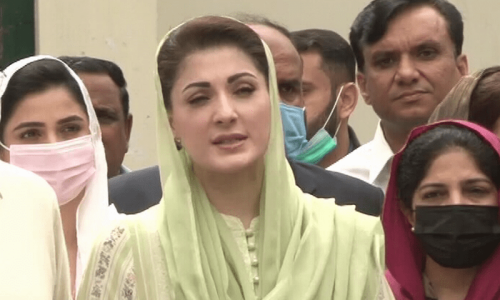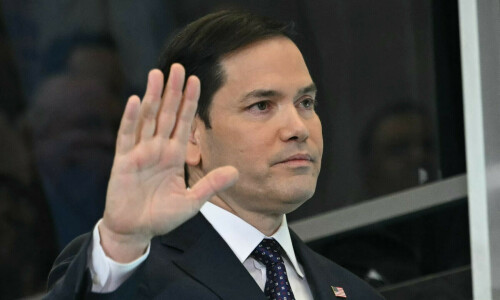The Supreme Court disqualified Prime Minister Nawaz Sharif from his job on Friday under the controversial articles 62 and 63 of the Constitution for mis-declaring his assets.
His sacking has indeed ratcheted up political uncertainty in the country but the markets appear to have already factored it in — at least for now.
The benchmark KSE-100 index, for example, made a remarkable recovery after falling 3.6pc, or 1,670 points, in the afternoon session after investors ducked for cover following the announcement of the verdict.
But the index had risen marginally from the previous day’s level by the time the market closed for the weekend.
The news that the ruling party had ‘accepted’ the court ruling and Nawaz Sharif stepped down to pave the way for his successor from the ruling Pakistan Muslim League-N helped the stock prices rebound.
Many believe that the market will make a quick recovery in the days and weeks to come to return to its May 24 peak since the court decision has cleared the uncertainty about Mr Sharif’s future.
The KSE-100 index has lost 17pc from its all-time high of 52,876 points in the wake of corruption investigation against the PML-N leader and his children.
The currency market also exhibited a similar trend. Though the central bank intervention kept the rupee stable in the interbank market, it plunged to 109 to a dollar for selling and 108 to a dollar for buying in the open market.
Analysts say the risk of currency devaluation had increased following Friday’s events in Islamabad.
However, a lot depends on who will replace Ishaq Dar, as he will soon be facing the National Accountability Bureau (NAB) as ordered by the apex court. Mr Dar has been the real force behind a stable rupee during the last couple of years.
Some analysts nevertheless argue that the ruling party’s focus is likely to shift from the economy as its leader fights the verdict against him and his family, push the courts to hold similar proceedings (under the articles 62 and 63) against his opponents and the opposition thereby mounting pressure for an early election in the country.
“The possibility of political chaos returning to the country has elevated after the disqualification of Nawaz Sharif,” says analyst Mubashar Bashir, who has several years of experience of working with banks and corporations in the private sector, and Wapda in the public sector.
“It will be a setback for the economy, which is already feeling headwinds in the shape of widening current account deficit, increasing trade gap on the back of declining exports, falling foreign exchange reserves, and mounting pressure of foreign debt servicing.”
A Karachi-based financial analyst conceded that macroeconomic vulnerabilities are building up and the political turmoil facing the country may worsen them. But the economy was “safe for now”, he said.
“Our GDP (gross domestic product) has grown by just above 5pc last financial year, foreign exchange reserves are still at a comfortable level and the rupee is stable,” he said.
“The overall security conditions have largely improved across the country owing to the ongoing military operation against militant groups. Beijing has indicated that it will continue to move ahead with its $57bn investment plan in the country’s transport, energy and industrial infrastructure under the CPEC [China-Pakistan Economic Corridor] initiative in spite of Nawaz Sharif’s disqualification.
“Unless the new government is totally bogged down by politics and we make a real mess of everything, I believe that we will survive the ouster of Nawaz Sharif.”
The country’s business community is also divided over the dismissal of Mr Sharif, with pro-Nawaz businesspeople worried about the direction politics will take in the next several weeks.
“If the court verdict unleashes political disorder in the country it will eventually hurt the economy and may affect — at least slow down — China’s investment in Pakistan under the corridor initiative,” said a former president of the Lahore Chamber of Commerce and Industry who is considered close to the former prime minister.
“It will also have serious implications for security conditions, forcing the government, as well as the military, to take their eyes off the ball,” he argued.
Mr Sharif’s critics in the business community, however, have a different story to tell. A leader of the All Pakistan Textile Mills Association argued: “It will be better for the country to have an early election and a new government.
“The PML-N has destroyed the business because of Dar’s anti-industry policies, which are badly hurting exporters and have already led to closure of a big part of the industry owing to a massive upturn in imports.
“Whatever economic stability the PML-N claims to have achieved is based on expensive, external debt. The bubble the Nawaz Sharif government has created has to pop sooner or later. The sooner it does the better so that we can start over.”
Published in Dawn, The Business and Finance Weekly, July 31st, 2017
















































